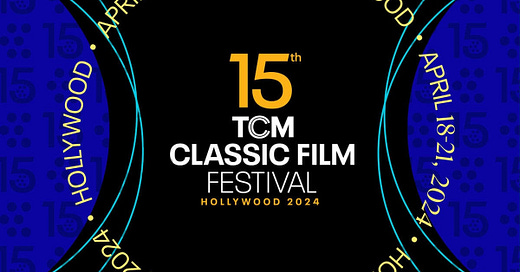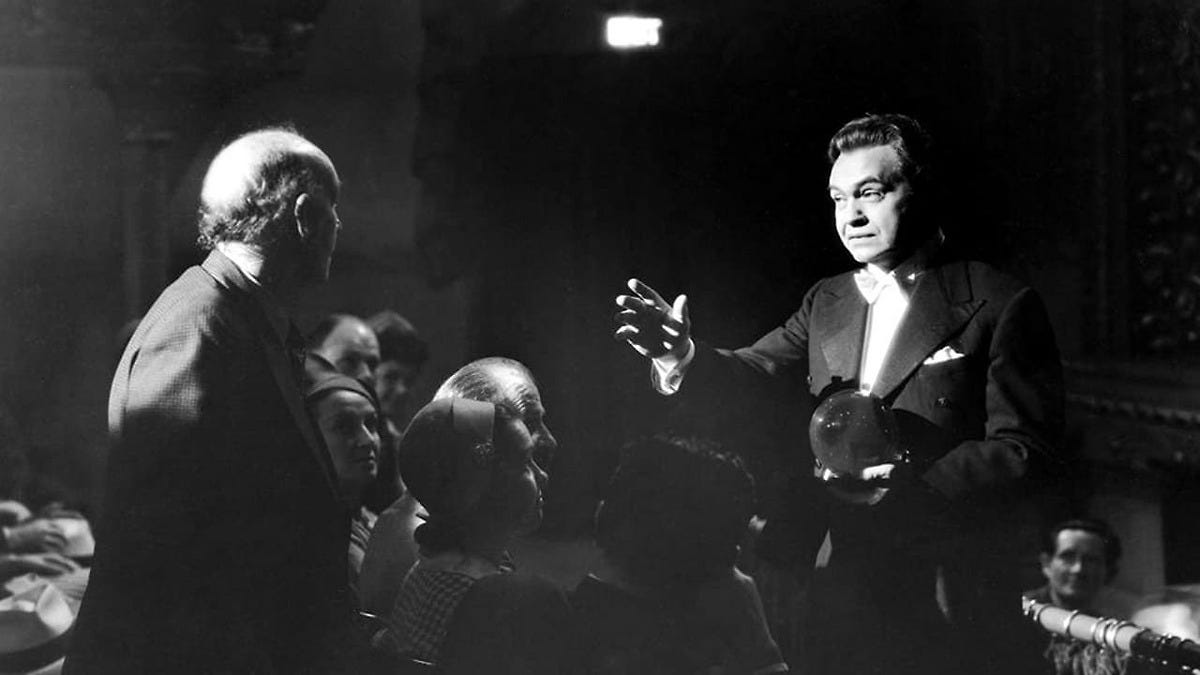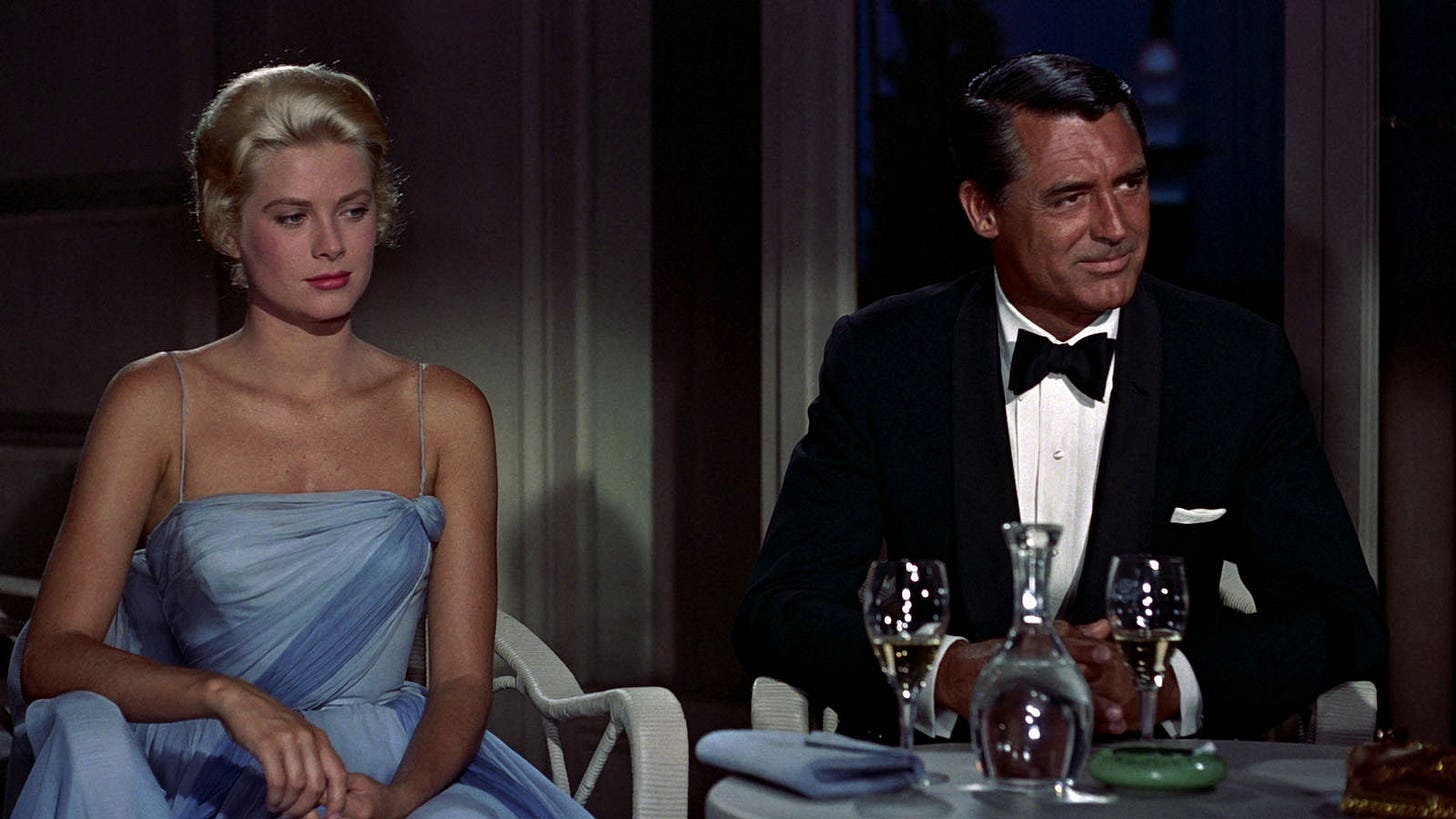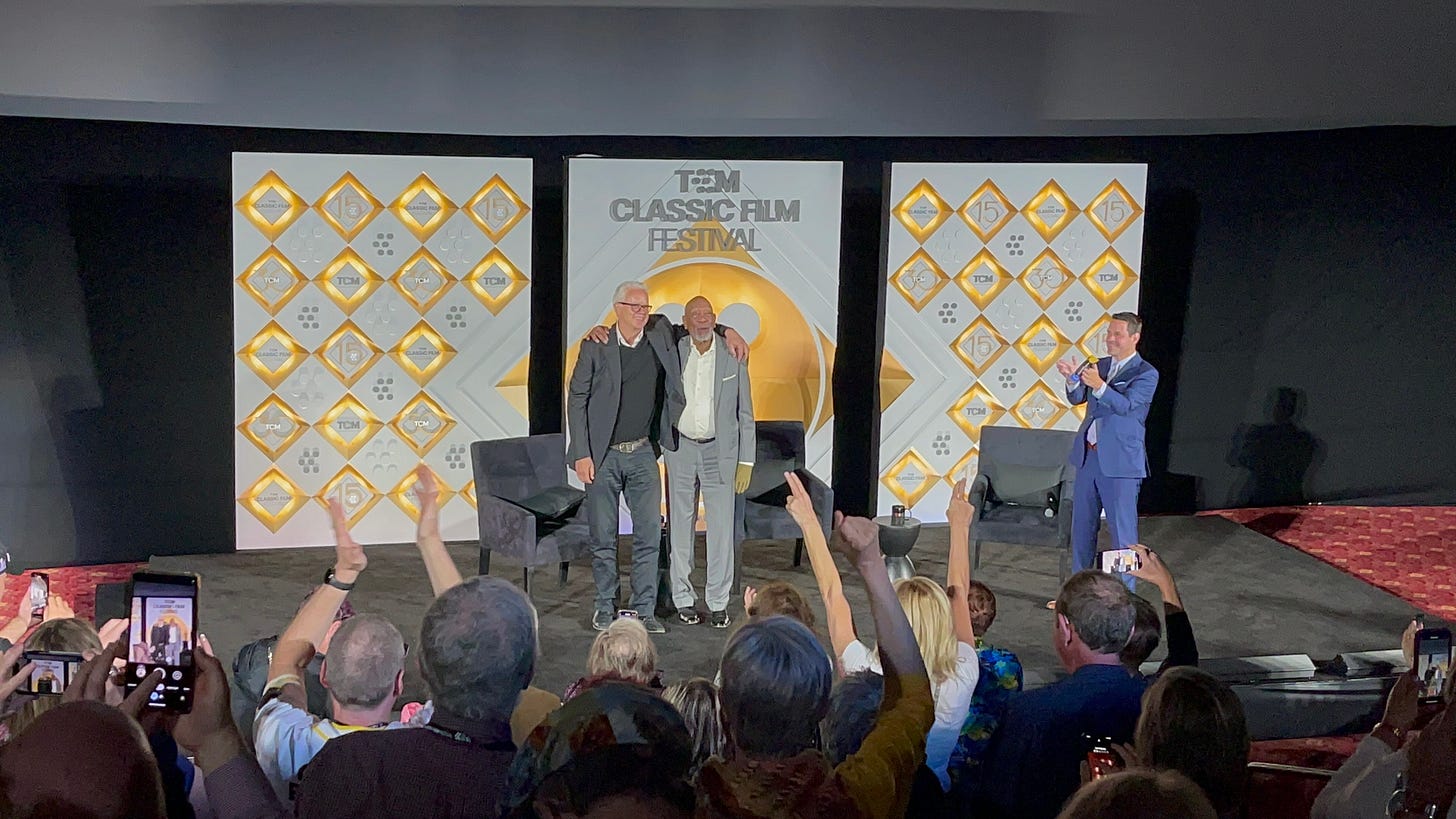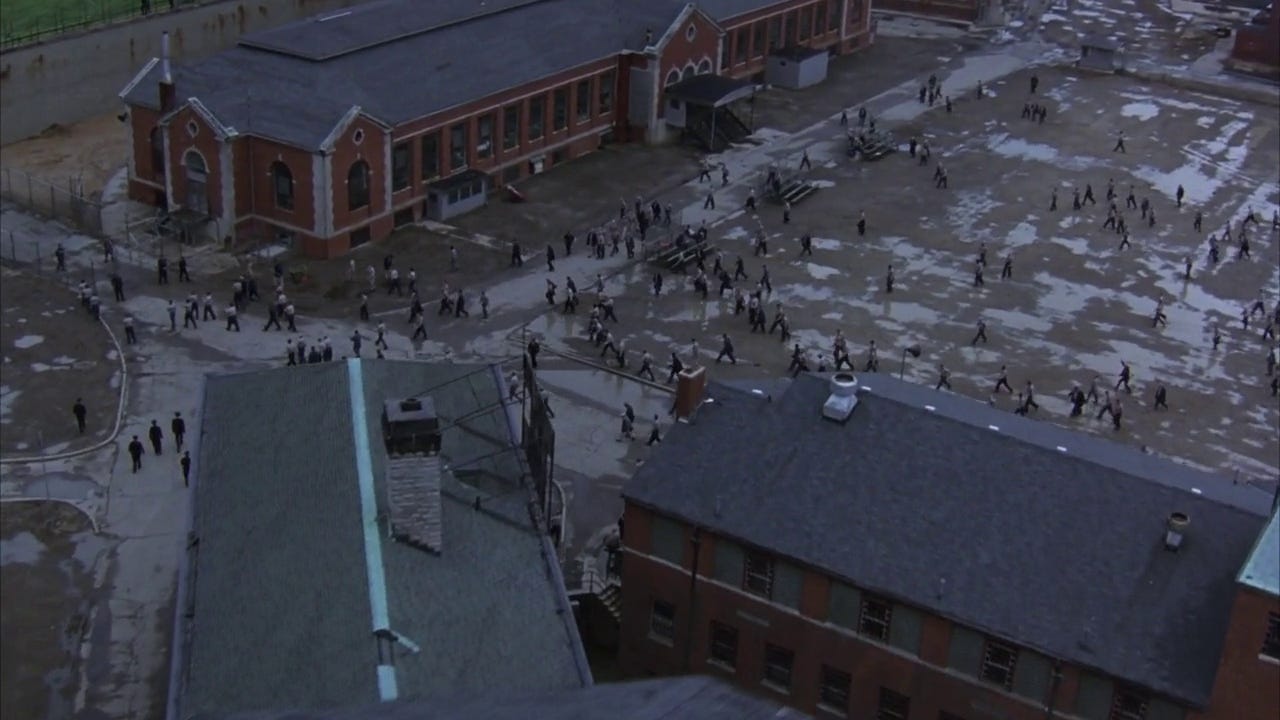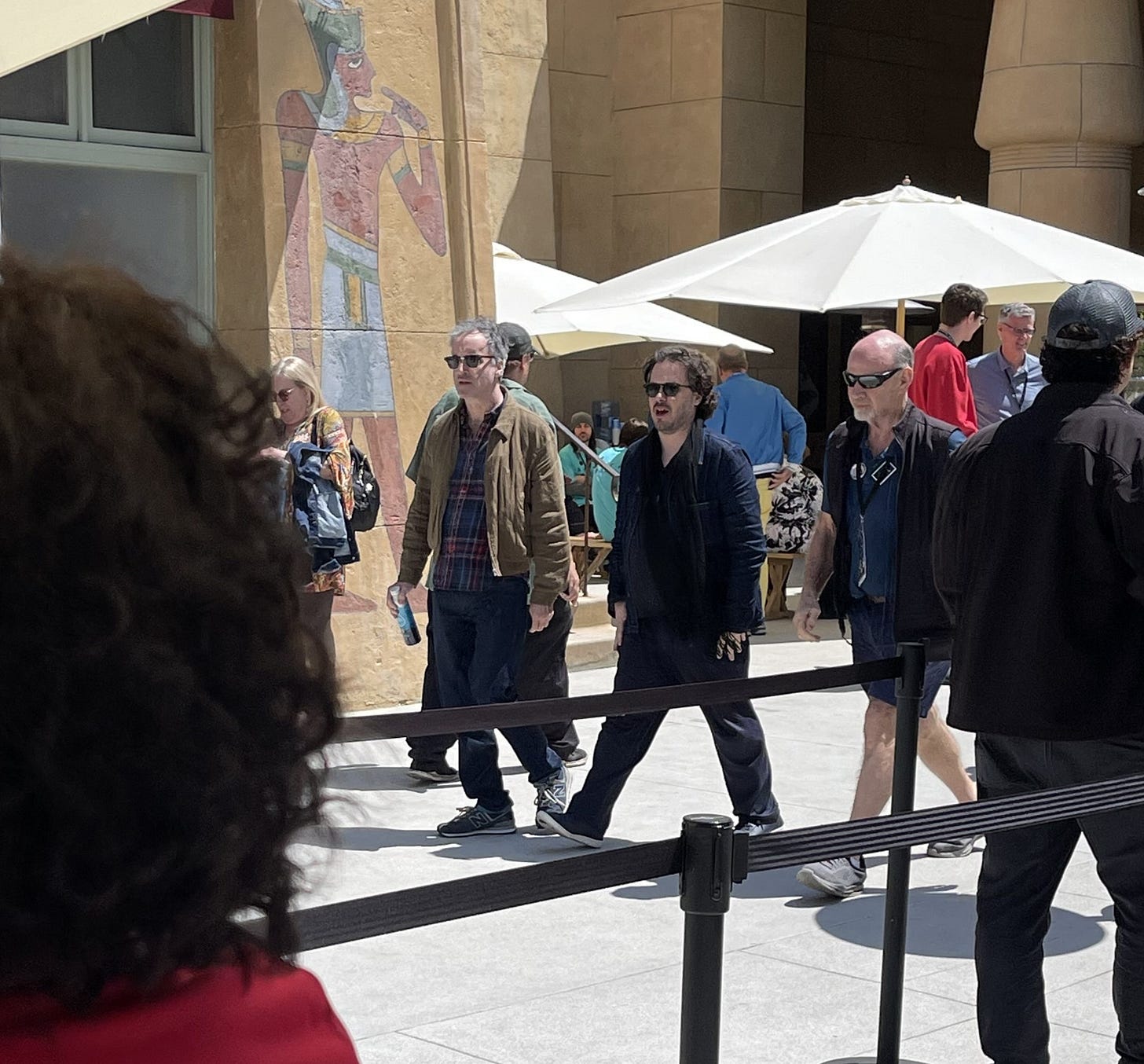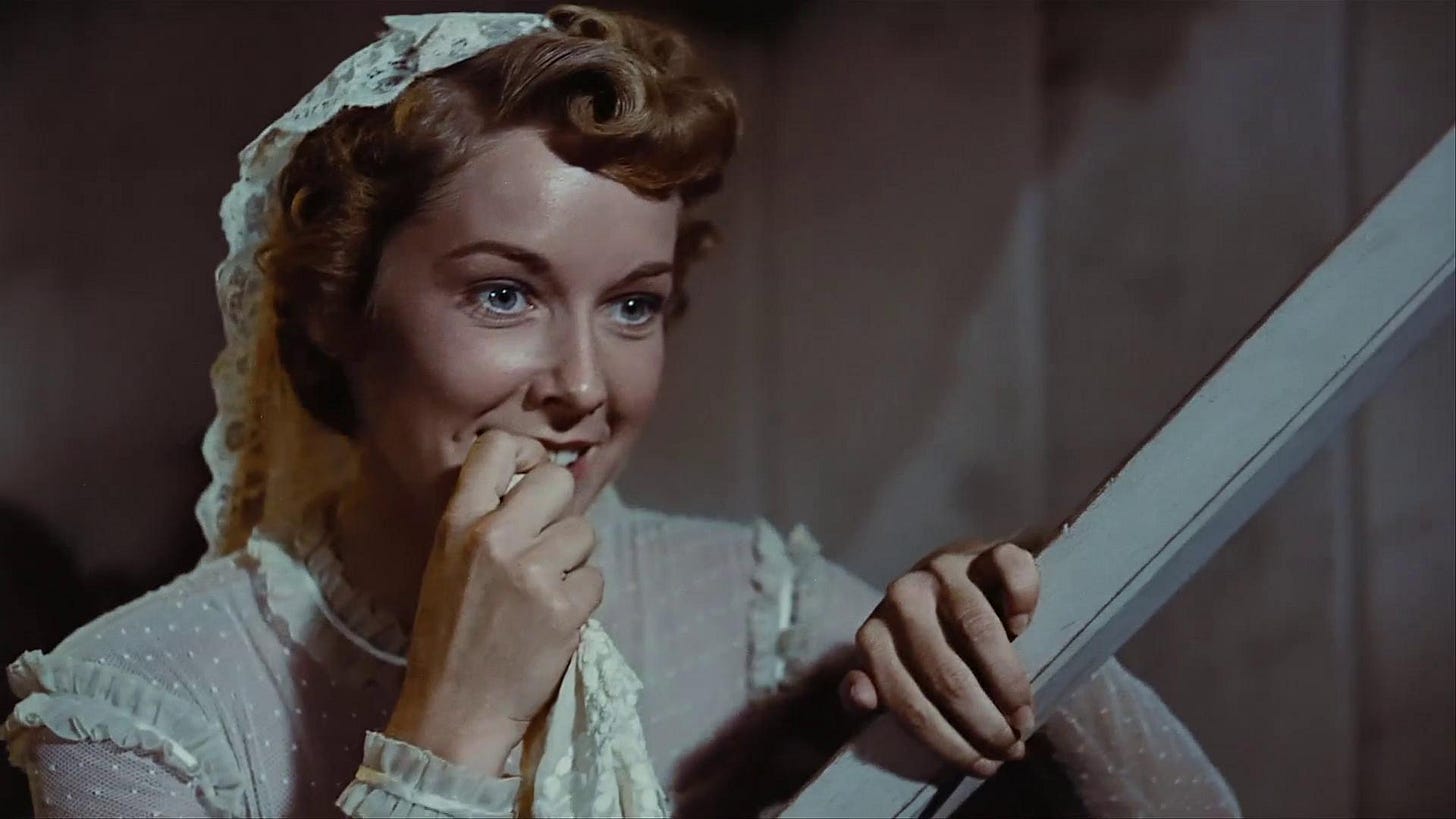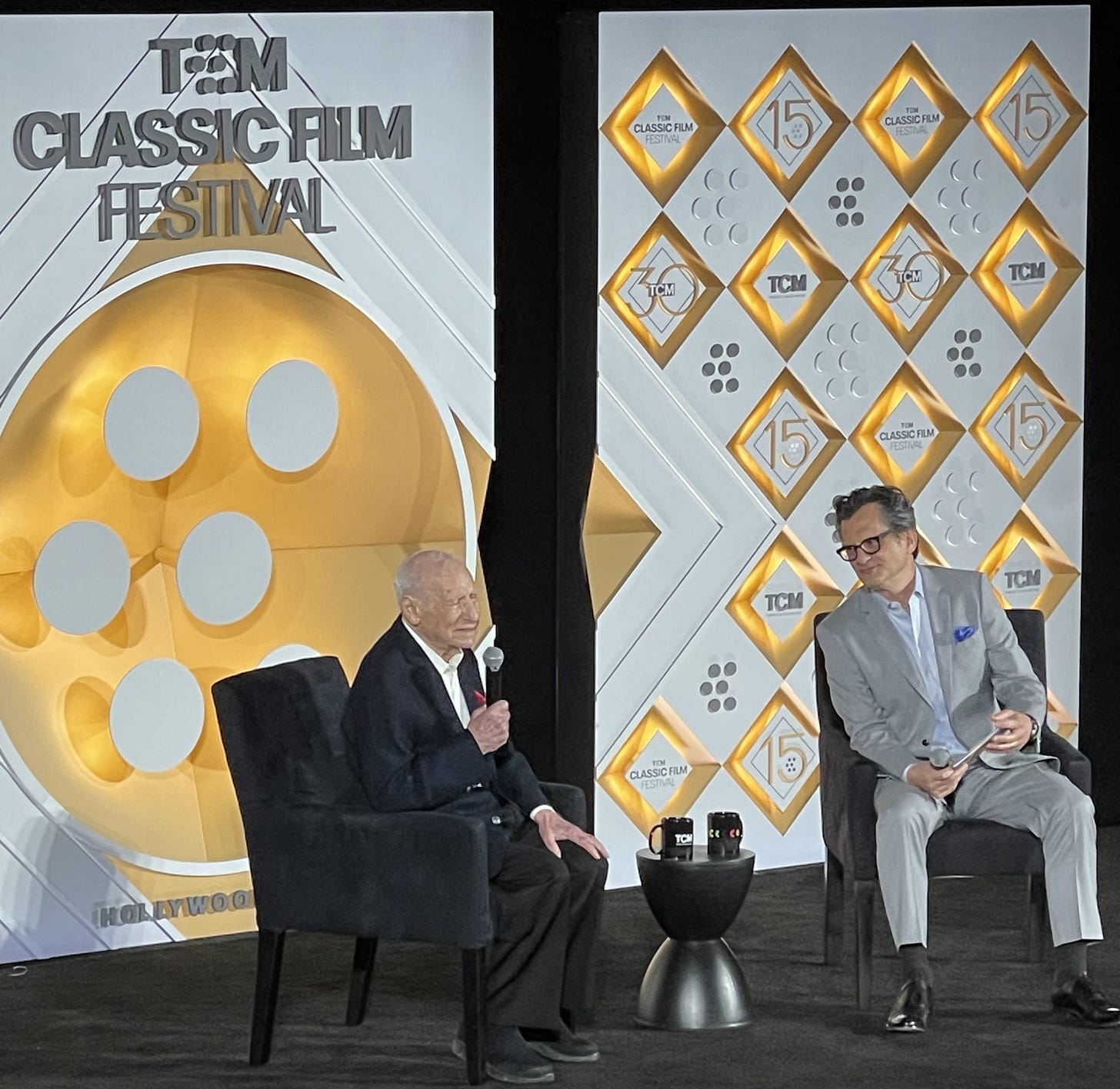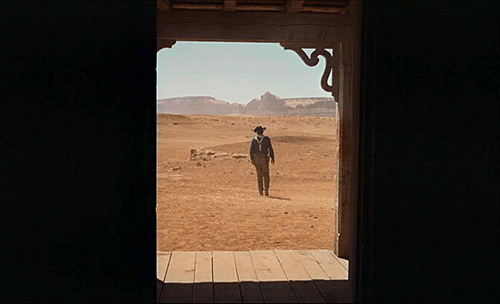Welcome back! I hope you enjoyed Part One of my TCMFF recap, where I wrote about Thursday (4/18) and Friday (4/19) of the festival. If you haven’t read it yet, start there before reading this newsletter, which will cover Saturday (4/20) and Sunday (4/21) of the festival.
SATURDAY (4/20)
My classic film friends have been clamoring for me to watch a nitrate print, and I finally listened to them when I watched Night Has a Thousand Eyes (1948) at the Egyptian Theatre to begin my Saturday.
A nitrate print screening is a unique experience. For those unfamiliar with it, a nitrate print is a type of film print commonly used in the early days of cinema before being replaced by safer and more stable materials. Nitrate prints are made from cellulose nitrate, which is highly flammable. If not stored properly or exposed to fire, it can quickly ignite and cause severe damage.
Because of poor preservation efforts, nitrate prints have become rare and valuable artifacts. Furthermore, because they are highly flammable, few theaters are up to the strict safety regulations and precautions needed to screen a nitrate print. In the U.S., according to Collider, only five movie theaters, the Egyptian being one of them, can screen nitrate prints. So, this screening was special.
Before the film, Author and Film Historian Alan K. Rode gave us a splendid introduction, and then a staff member of the Egyptian Theatre gave a brief announcement on what to do in a fire emergency. It’s been a bit, but I felt like I had just boarded an airplane.
But, once the film started, I could immediately tell why my friends had been bugging me this entire time to get to a nitrate screening. The contrast and sharpness of the picture were like anything I had ever seen. I first noticed how luminous Gail Russell’s eyes looked against the night sky. Edward G. Robinson’s looked just as vibrant and dynamic, too. My eyes couldn't believe what they were seeing. It was almost like watching liquid silver on screen. It was wild! If a nitrate screening is showing in a theater near you in the future, run, don’t walk to get in line.
The film is a noir thriller about a psychic (played by Edward G. Robinson) haunted by visions of tragic events and tries to prevent them from happening. There were moments where I found the film quite suspenseful, but to be honest, most of the time, I was laughing. Edward G. Robinson does try to sell the whole psychic gig, but I couldn’t buy it. Nonetheless, I still found it entertaining, especially with William Demarest, who steals every scene he’s in.
Next, I went to the TCL Chinese IMAX Theatre to watch the world-premiere restoration 4K DCP of North by Northwest (1959). Before her discussion with writer, producer, and director Nancy Meyers, TCM Host Alicia Malone informed us that this was a brand-new scan of the film, with some clean-up done in the blue color space and the special effects (don’t worry, the kid who plugs his ears before the gun goes off is still there). Additionally, she disclosed that they plan to create new 70mm prints from this restoration later this year!
Her conversation with Nancy Meyers was excellent. After Meyers talked about her love of the film, she also told us a great anecdote about the time she met Cary Grant through her friend, Gene Siskel (yes, that one). I wouldn’t want to butcher the story, so I found this great article retelling it. You should also read the profile Siskel did on Grant, which contains details that Meyers shared with us that day, like how Grant mentioned that “Ingrid [Bergman] always did smell good” and how Grace Kelly was “…the best actress he ever worked with.”
I plan to cover the film in a future newsletter, so I won’t write about it here, but the restoration looked marvelous!
My most anticipated event of the festival was my final film of the evening: The Shawshank Redemption (1994) at the TCL Chinese IMAX Theatre. This movie was a staple of my childhood and likely of many others who grew up in the early 2000s and watched it countless times on cable television.
The appearance of the film's two main stars, Tim Robbins and Morgan Freeman, who TCM Host Dave Karger joined, made this event memorable. During a conversation before the film, Karger asked Robbins to choose one of the three women who are hung up on his prison cell wall during the film- Rita Hayworth, Marilyn Monroe, or Raquel Welch. Robbins responded by asking if he could choose Carole Lombard instead. This resulted in roaring applause from the crowd. Tim knew what he was doing in a theater packed with TCM fans. Since the event, TCM has posted a video of the entire conversation, which you can watch here.
Watching one of my all-time favorite films at the historic TCL Chinese IMAX Theatre was a dream come true. Even though I’ve seen this film countless times before, I got goosebumps watching each iconic scene play out on that gigantic screen, especially during cinematographer Roger Deakins's beautiful sweeping aerial shot of the prison yard towards the beginning of the film.
Having watched this film at different stages in my life, I’ve found more life lessons each time I revisit it, which, to me, is the hallmark of a masterwork. With so much chaos in the world today, it’s a stark reminder of how important it is to fight for our inner peace no matter the obstacles placed before us—a life-affirming film, without a doubt. For the record, my Zihuatanejo is Monterey, CA.
SUNDAY (4/21)
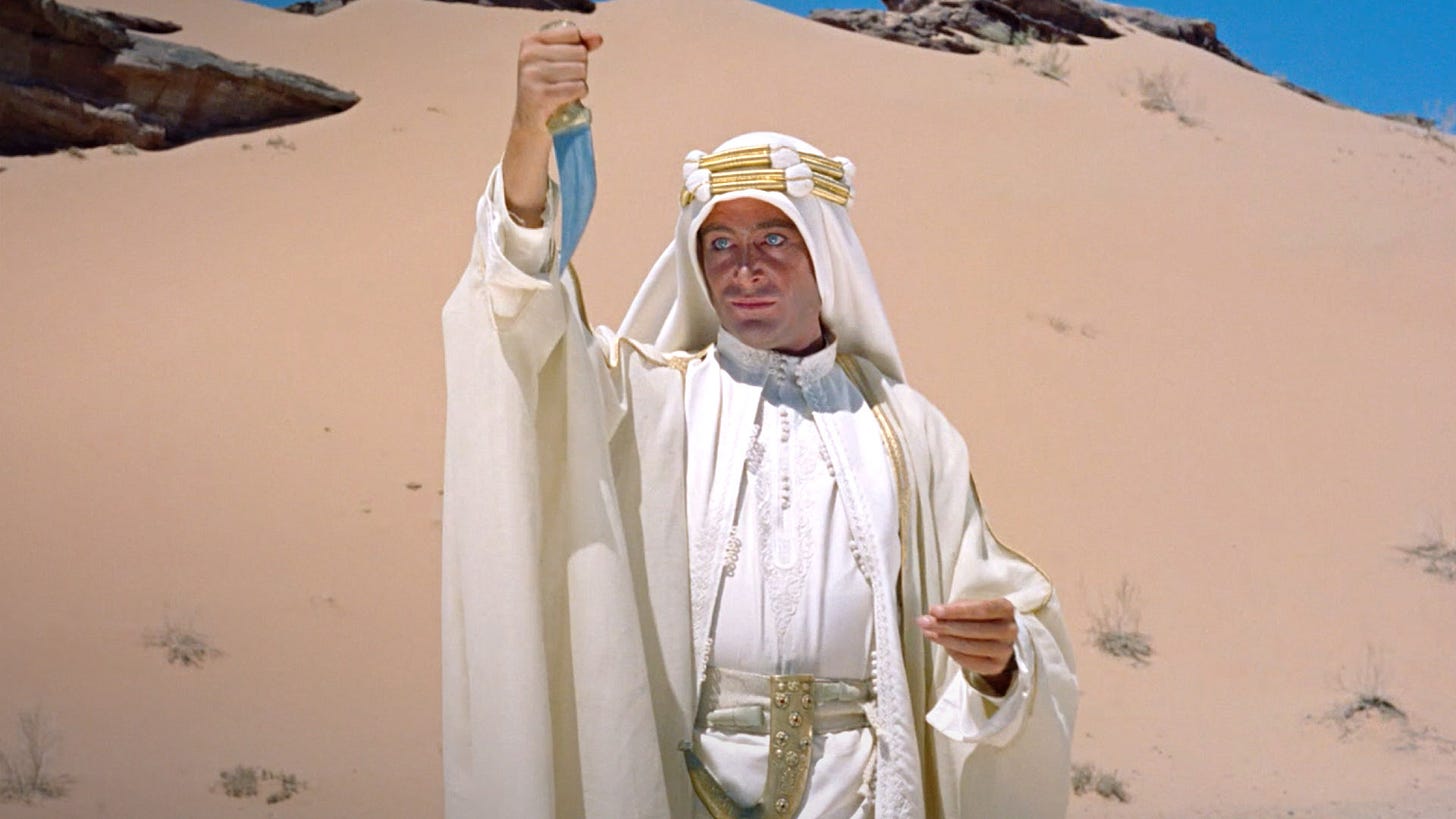
This was my favorite day of all four days of the festival. Initially, I did not plan to start my morning with Lawrence of Arabia (1962). Still, thanks to more intelligent people than me (aka the Finite Cinema Dreams Discord Server), they convinced me not to make a grave mistake.
I’m so glad I listened to my friends. Lawrence of Arabia (1962) was an absolute feast for the eyes in 70mm. The shots of the vast open desert, the engaging performances, and the exceptional score by Maurice Jarre all reminded me why it’s one of the greatest films ever made. Even with the intermission at the two-hour and 19-minute mark, I didn’t get up to stretch my legs. The film completely engrossed me, and it honestly felt like I was watching this film during its first theatrical run in 1962.
Caleb Deschanel, a well-known cinematographer and director in Hollywood, introduced the film alongside TCM host Jacqueline Stewart. Deschanel has worked on several popular films, such as The Natural (1984), The Patriot (2000), and National Treasure (2004). As you may have guessed, Caleb Deschanel is the father of star Zooey Deschanel, who unfortunately wasn’t there. Still, many of her family members were, including her current partner Jonathan Scott of Property Brothers fame.
However, the most remarkable guest there, sitting only two rows away from me, was Edgar Wright (Three Flavours Cornetto Trilogy (2004-2013), Scott Pilgrim vs. the World (2010))! I couldn’t get a picture with him during the intermission or afterward. Still, I was able to snap this candid of him walking out of the Egyptian.
Where else could you run into all these filmmakers and watch Lawrence of Arabia (1962) in 70mm on the big screen with them other than TCMFF?
After Lawrence of Arabia (1962), I got in line for another epic, The Searchers (1956), which I only vaguely remember seeing as a kid with my dad. This was another 70mm screening, but it was a brand-new film restoration, restored by Warner Bros. in collaboration with The Film Foundation. The film's screening was graced by Alexander Payne, acclaimed director of the recently Oscar-nominated The Holdovers (2023) and member of the Film Foundation board. Payne's introduction to the film was one of the highlights of the entire weekend. Additionally, members of the John Wayne family, such as Patrick Wayne, were present at the screening.
As you can imagine, the restoration was stunning, and I was shocked by how reflective the film is on America's history. John Wayne’s character, Ethan Edwards, embodies many of the strengths and weaknesses Americans at that time saw in themselves. While John Wayne was a clear standout, I also enjoyed Vera Miles’ portrayal of Laurie Jorgensen. Without spoilers, there’s one particular scene where a fight occurs, and the camera slowly pans to her face while watching the fight, and she gives this little smirk that is just perfect (see below).
I ended my TCMFF by attending Spaceballs (1987) at the TCL Chinese IMAX Theatre because I’m a man of many multitudes. I also really wanted to see Mel Brooks, who is now up there in age, and I knew that this opportunity may not come again.
His conversation with Ben Mankiewicz was sensational. For being 97 years young, Mel was charming and lively, often waving his arms and getting up from his chair to work up the crowd while telling us memorable behind-the-scenes anecdotes about some of the films he made.
His conversation with Ben Mankiewicz was sensational. For being 97 years young, Brooks was charming and lively. He was animated while telling us these memorable behind-the-scenes anecdotes about some of the films he made, and you could tell he loved every minute of it.
Most of his stories weren’t even about Spaceballs (1987) and instead were about High Anxiety (1977), his parody of a Hitchcock film. He had gotten so invested in telling us these stories one after the other that, at some point, Brooks realized he hadn’t even talked about Spaceballs (1987), but as Ben reassured, ‘the crowd didn’t care,’ and he was right— these stories and Brooks being there with us was all we could have ever wanted. The most touching moment of the conversation was towards the end when Ben Mankiewicz, holding back tears, reached over to Mel Brooks and told him how much his friendship had meant to him all these years—a beautiful moment.
Whew, another year in the books!
TCMFF is truly a one-of-a-kind experience, and if you haven’t attended yet, I highly recommend that you do so next year! It’s a gathering of classic film fans unlike any other, and the folks at TCM do an excellent job of ensuring each festival-goer has the best experience they can have. In only two years of attending the festival, I have met folks I now consider friends, and for someone who doesn't have many back home who enjoy and appreciate these “oldies” it has significantly impacted my life. TCM is genuinely one of the greatest protectors of our film heritage. I’m forever grateful that they make this festival possible each year for classic film enthusiasts like myself to experience these films as they were intended to be seen. TCMFF will always be home.
If you have any questions about attending the festival, please comment below or contact me on my social media outlets.
Until next time, stay safe, be kind to yourself, and continue watching great films! Thanks for reading!

